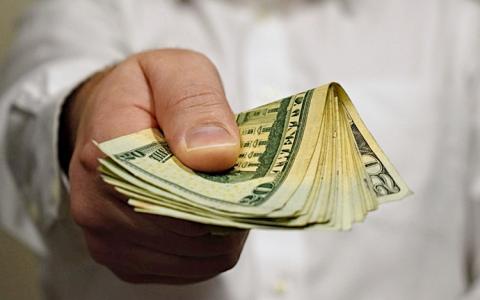
Mary Johnson died in 2018. Last week, her heirs received a stimulus check in the mail for $1,200 payable to “Mary L. Johnson Decd.”
“We had a good laugh about it,” said her son, Tim Martin Johnson of Philadelphia. “She’s been gone two years. We laughed about how the check actually said ‘Deceased’ on it.”
After the laughter died down, Johnson — who was the executor of his mother’s estate — was faced with a quandary.
“I tried to figure out what to do,” he said. “I was pretty sure we couldn’t accept it.”
During the last month, the Internal Revenue Service has paid out more than $207 billion in Economic Impact Payments to individuals as part of the $2 trillion pandemic package known as the CARES Act.
But the act was written so quickly that no one bothered to ensure that money wouldn’t be sent to the dead, said Nina Olson, a former IRS official and current executive director of the Center for Taxpayer Rights.
Olson estimates that the IRS may have mailed thousands of checks, potentially worth tens of millions of dollars, to people who the agency should have known had breathed their last.
Sure, the government would like the money back. After all, It’s a bit of an embarrassment when so many of the living are struggling economically through the pandemic to be sending checks to the dead.
But tax experts said last week that the issue is a little more complicated. There’s nothing in the law that would require the return, they say.
And the government has made the same mistake before.
Nearly 2.8 million Americans died in 2018, the last year that the number of deaths was available, according to the Centers for Disease Control and Prevention. It’s unknown how many of the deceased received relief money in recent weeks.
Whether someone received a check was dependent on whether they — or their estate — had filed a tax return in 2019 or 2018.
“It’s terrible because we’re dealing with human beings who are still struggling with a recent loss in their lives,” said Olson. “It’s part of what happens when you have to get money out quickly. You know you’re going to be inaccurate.”
Whether the checks must be returned may be a matter of personal conscience.
“You’re not supposed to keep that payment,” U.S. Treasury Secretary Steven Mnuchin told The Wall Street Journal in a story published April 28. “We’re checking the databases, but there could be a scenario where we missed something, and yes, the heirs should be returning that money.”
It took the IRS until May 6 to post information on its website FAQ asking heirs to comply.
But the IRS can’t do much more than ask, said Martin Abo, of accounting firm Abo & Co. LLC in Mount Laurel, N.J., and Philadelphia.
“It’s unclear whether you would actually have to do it. There’s really nothing in the law to say you have to give it back,” said Abo, who has received multiple inquiries about the checks written to the dead. “But stand advised.”
Olson, of Taxpayers Rights, concurred. “There’s no legal interpretation,” she said. “I don’t know how they’re basing their decision” to ask for the money back.
Every week, the IRS receives a master death file of every American who has died.
“They know these persons are deceased,” Olson said. “Now someone in their families is being told they have to go to the post office, stand in line, and mail the check back? It’s very disturbing.”
She said it is “unlikely” the IRS would pursue the stimulus money that it had erroneously awarded.
“It will cost more to file the suits than it’s worth,” Olson said.
History also indicates that little will be done to recover the money. In 2008, the Department of the Treasury sent rebate checks of $300 to $600 to millions of Americans, many of them long dead.
Olson, then the National Taxpayer Advocate, for the IRS, testified before Congress about the mix-up. During questioning, U.S. Rep. Lloyd Doggett, D-Texas, pointed out that his late mother had been granted $300. The IRS then did not make an effort to have that money returned.

Breaking News Newsletter
As it happens
Get updates on the coronavirus pandemic and other news as it happens with our breaking email alerts
“Just like 12 years ago, (the law) could have said ‘don’t send it to people who are deceased,’” Olson said. ‘But they didn’t. Now they’re putting it on the taxpayers of the world to correct the mistake.”
Johnson, whose late mother, Mary, was issued the check, said he and his siblings weighed their options. They decided to do the moral thing.
“There’s no way my family would keep it. We wouldn’t feel right about doing that,” Johnson said. “We sealed it back up and sent it back.”
This article originally appeared in the Chicago Tribune.



